The Best At-Home Chemical Peels for a Professional-Grade Glow, Tested by Editors
Softer skin, ahead.

Samantha Holender
Some skincare treatments are best left to the pros—and an intense chemical peel with glycolic, lactic, or salicylic acid is most definitely one of them. But the best at-home chemical peels can provide the same glow-boosting, skin-evening benefits without the risk of skin irritation. Bonus: I can do them from the comfort of my own bathroom.
Peel pads, wash-off formulas, and leave-on treatments vary in strength and ingredients, but most aim to minimize fine lines and wrinkles, improve brightness, and lift unwanted discoloration and brown spots. I'll be honest: the results take longer to achieve than they would with a professional treatment. But consistency with these at-home chemical peels always leads me to smoother texture and faded dark spots.
With so many products on the market, deciding which formula best suits your specific skin-care concerns can be tricky. The good news is that I've tried dozens myself, consulted dermatologists, and scoped out the best of the best on the market. Here, I'll dive deep into all things peels: how they work, how they differ from their in-office counterparts, and which formulas deserve a spot on your vanity.
(If you’re interested in more professional-grade at-home treatments, check out Marie Claire's favorite LED masks, keratin treatments, and dermaplaning tools.)
The Best At-Home Chemical Peels
- Best At-Home Chemical Peel Overall: Shani Darden Triple Acid Signature Peel
- Best At-Home Chemical Peel for Sensitive Skin: Renée Rouleau Triple Berry Smoothing Peel
- Best At-Home Chemical Peel for Mature Skin: Natura Bissé Diamond Glyco Extreme Peel
- Best Drugstore At-Home Chemical Peel: L'Oréal Paris Bright Reveal Dark Spot Exfoliant Peel
- Best Luxury At-Home Chemical Peel: Chanel Le Lift Pro Gommage AHA Resurfectant
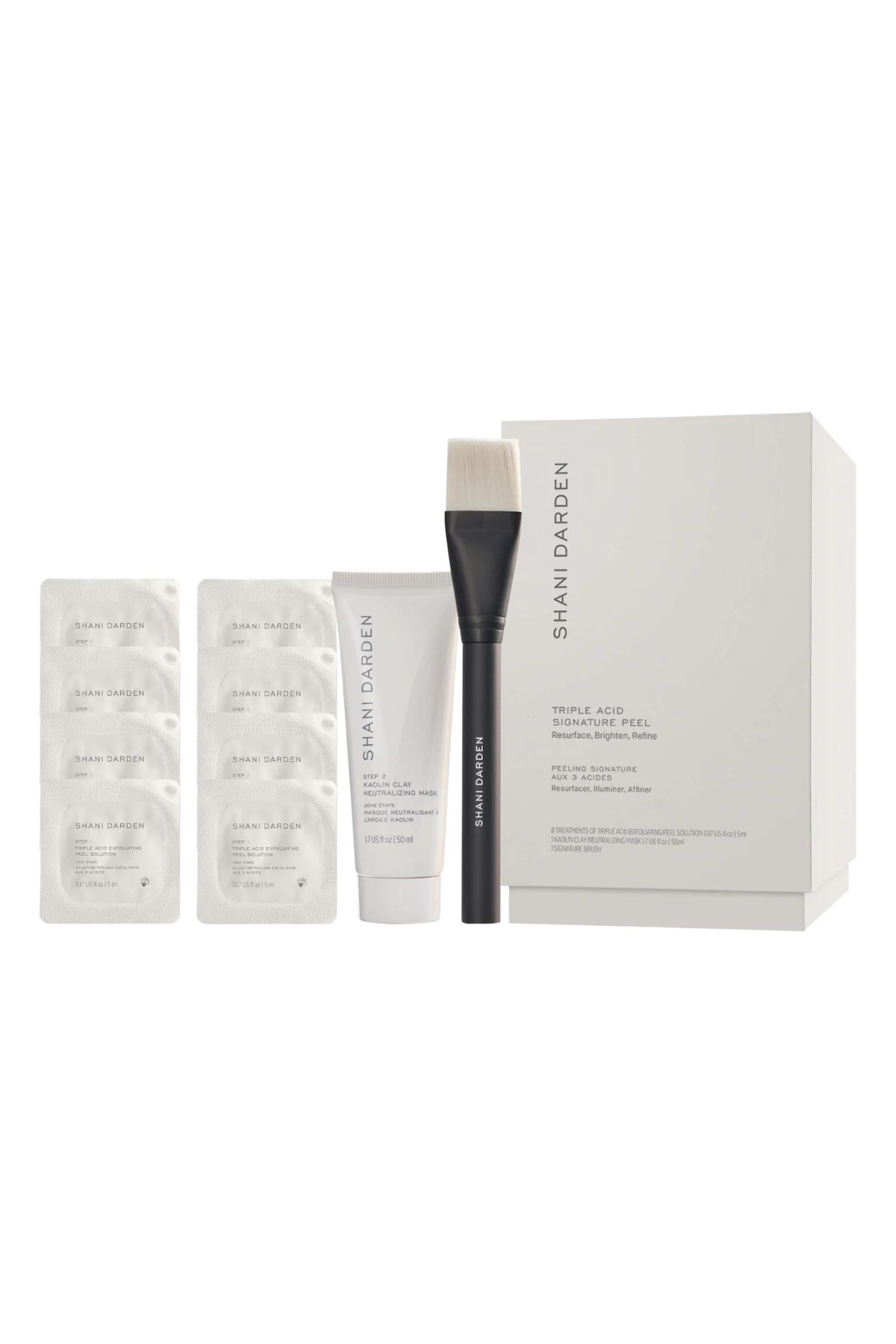
Shani Darden's Triple Acid Signature Peel is the gold standard of the at-home category. Formulated by its acclaimed esthetician namesake, this system is as calming as it is concentrated. The first step features glycolic acid, lactic acid, and mandelic acid, a combo chosen to draw out gunk from pores and brighten my complexion. The second step is the neutralizer, which soothes the skin with kaolin and bentonite clays. When all is said and done, my skin has a serious post-facial glow. It has a steep price point, but I get eight full peels out of the kit.
Key Ingredients: Glycolic acid, lactic acid, mandelic acid (exfoliating), kaolin clay (detoxifying)
Who It’s For: Normal, combination, oily, and dry skin types
Size: 8 0.17 oz peel packets, 1 1.7 oz mask
What We Love: Easy to use; effective; editor-approved; pro-formulated
What We Don't: Expensive
Review for MC: "DIY peels can be daunting for people prone to redness—especially when they're touted as being nearly as effective as their in-office counterparts. Even though I was wary of irritation, this peel exceeded all my expectations. After letting the acid blend sit on my skin for one minute, I neutralized it with the clay mask, and was instantly met with a warm, almost pleasing sting. Once I rinsed the mask off, my skin was noticeably brighter and more glowy—like a glassy skating rink after getting the Zamboni treatment. Best of all, I wasn't left with any redness or tightness, which means I can safely use it before a night out with no fear of ruddy blotches or irritation." — Taylore Glynn, Contributing Beauty Writer
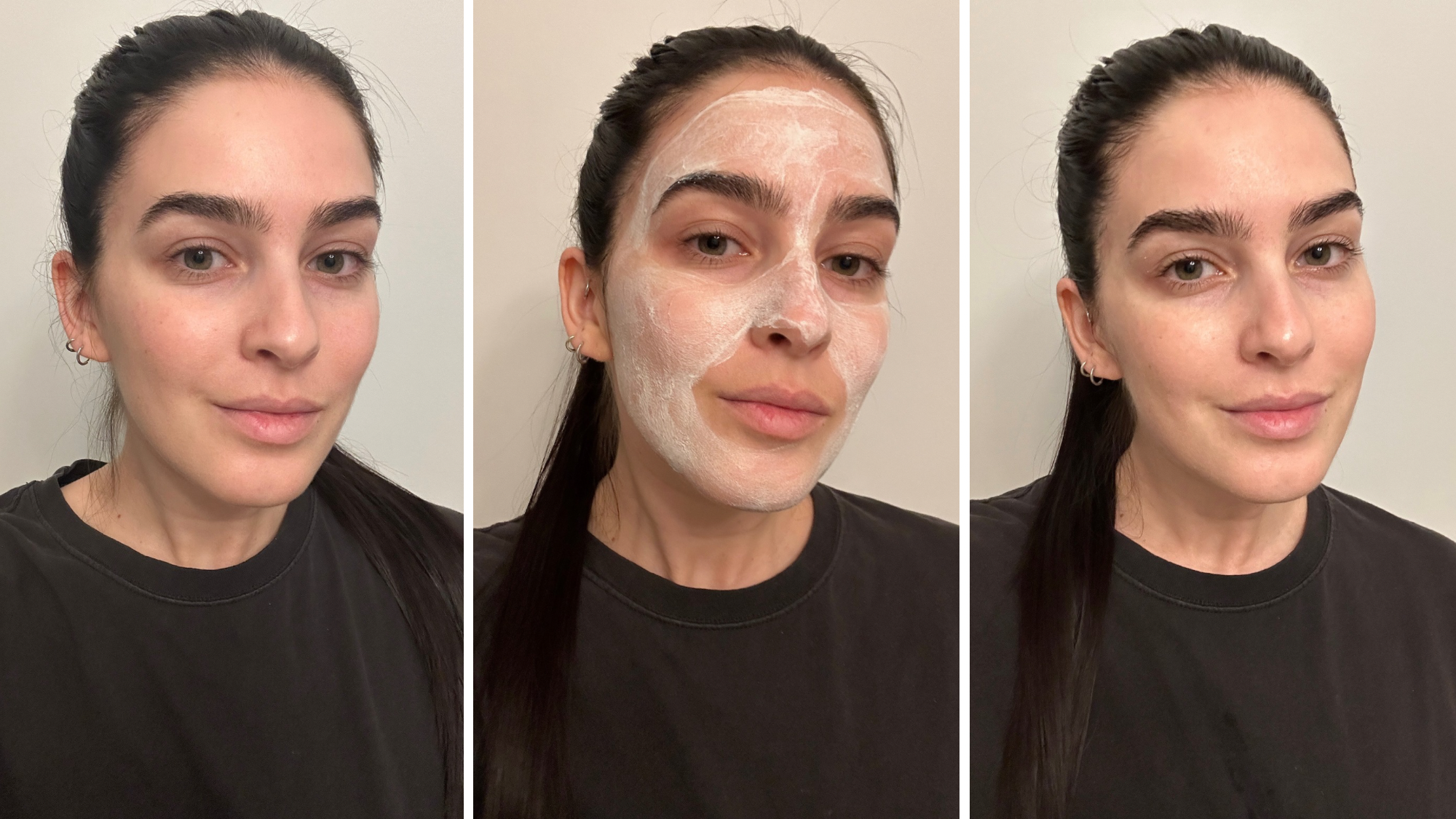
Shani Darden's peel is the best of the bunch, no matter your skin type.
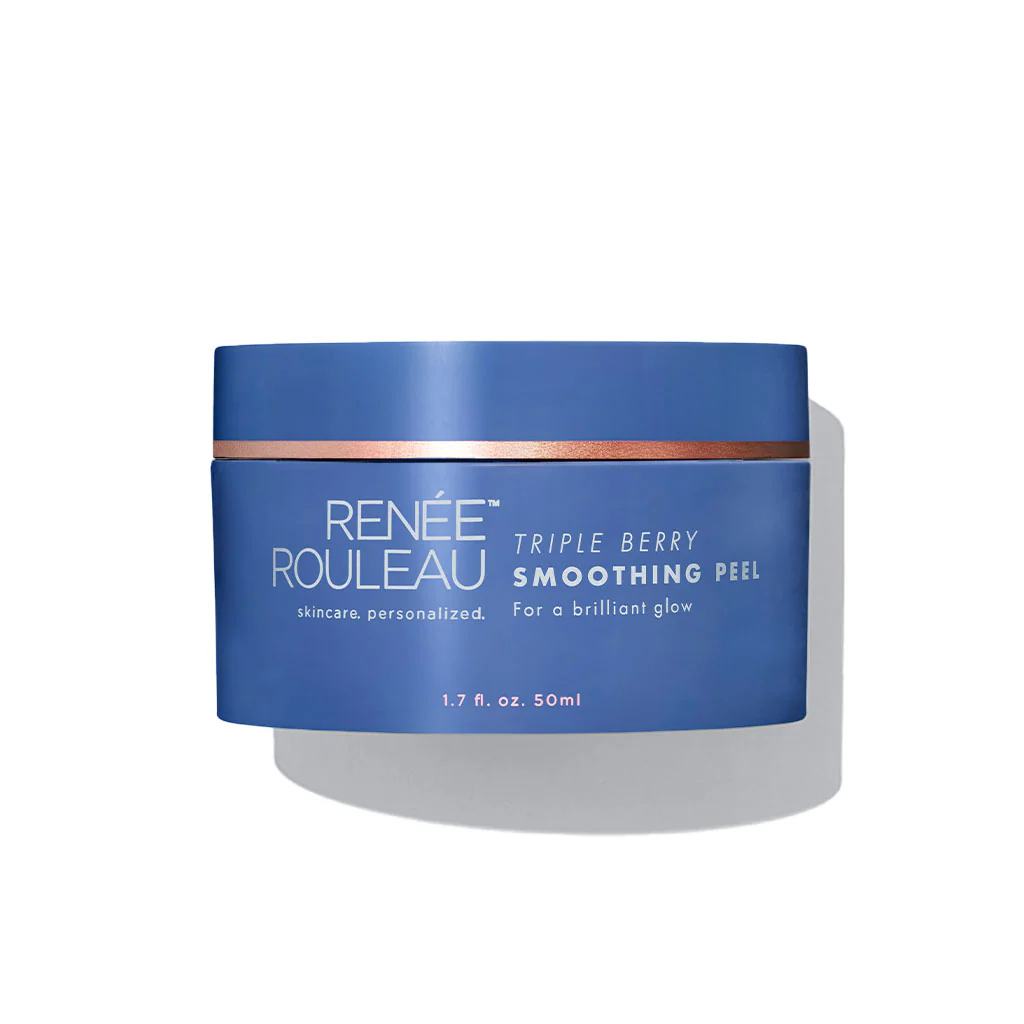
This berry-packed peel was formulated by a beauty industry veteran (who also happens to be Sabrina Carpenter's long-time esthetician). It contains a whopping six AHAs that help smooth skin and treat clogged pores, as well as an antioxidant triple-threat of brightening blueberry, raspberry, and strawberry extracts. This peel is still gentle enough for sensitive and redness-prone complexions despite all that exfoliating power. Best of all: it looks and feels like raspberry jam you'd nab at the farmer's market.
Key Ingredients: Glycolic acid, lactic acid, fruit extracts (exfoliating)
Who It’s For: All skin types
Size: 1.78 oz
What We Love: Effective; editor-approved; pro-formulated; safe for sensitive skin
What We Don't: A little messy to remove
Review for MC: "This peel has been a mainstay in my exfoliating arsenal for years now. And after revisiting it for this road test, I can confirm that it lives up to the hype. I slathered it on clean skin before doing my makeup on a Saturday night. Within seven-ish minutes, it granted me a natural glow and a smoother canvas for my foundation without triggering any redness. Though I definitely need a washcloth to help rinse it off, this brambly peel is also just plain cute to rock around the house." — Taylore Glynn, Contributing Beauty Writer
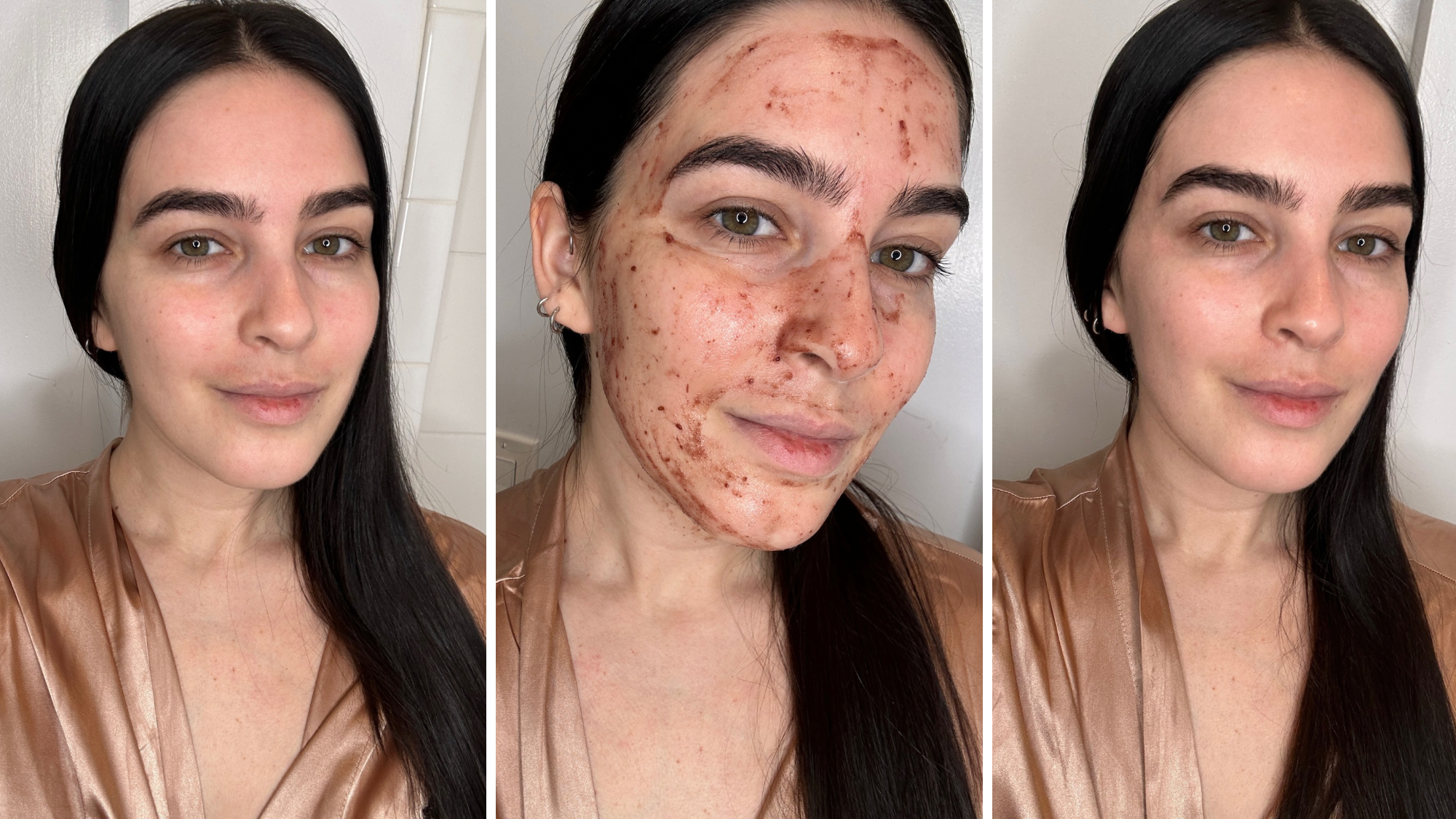
This peel is perfect for a pre-glam glow.
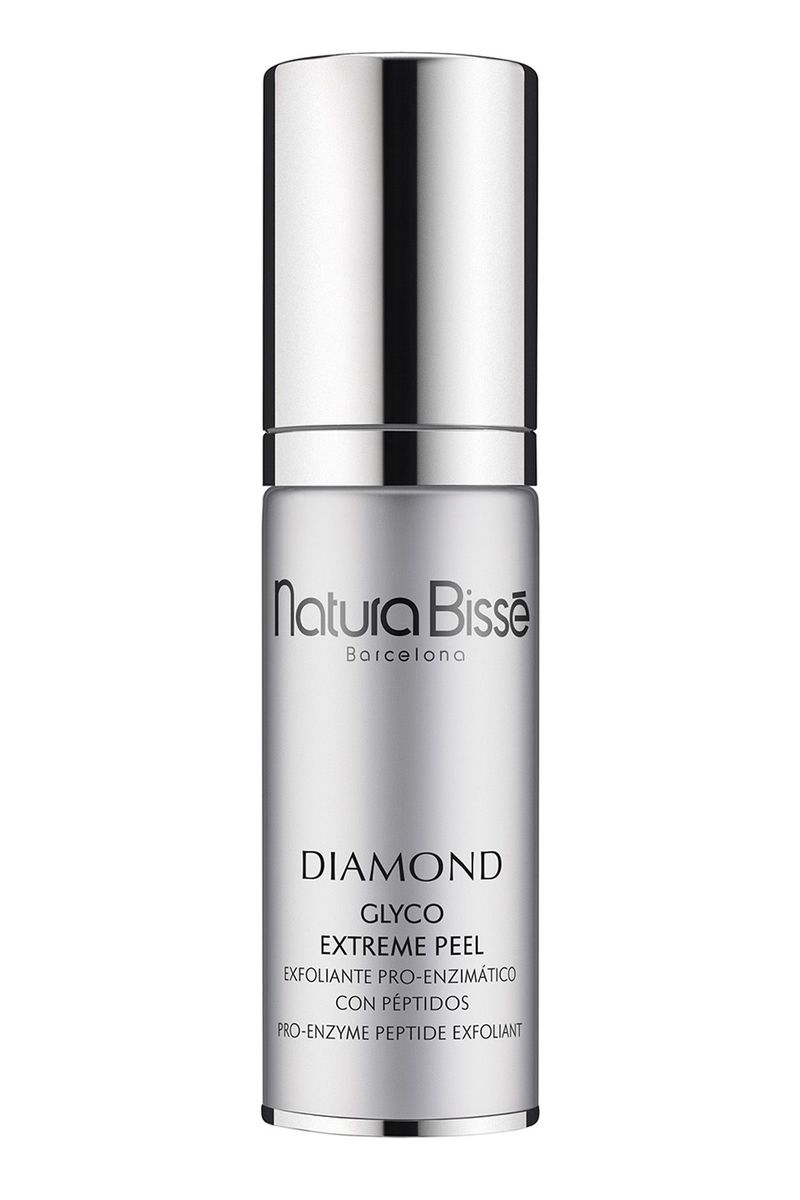
Supercharged with five different AHAs, including glycolic acid, this chemical peel targets signs of aging on the skin. "It has glycolic acid, the smallest acid in particle size, meaning it is the most effective in breaking down cellular bonds to reveal new cells," explains board-certified dermatologist Dendy Engelman, M.D. FAAD.
Key Ingredients: Glycolic acid, salicylic acid (exfoliating), peptides (hydrating)
Who It’s For: Mature, oily, and acne-prone skin
Size: 1 oz
What We Love: Derm-approved; brightening; lifting
What We Don't: One of the most expensive on this list
Review for MC: "I've been noticing some lines on my forehead recently, and this peel delivered on its promise to make my skin look smoother. The formula's airy, gel-like texture made it easy to apply in a flash, and after 15 minutes, my skin looked brighter, firmer, and a little more plump. It was also easy to rinse off, which I always appreciate." — Taylore Glynn, Contributing Beauty Writer
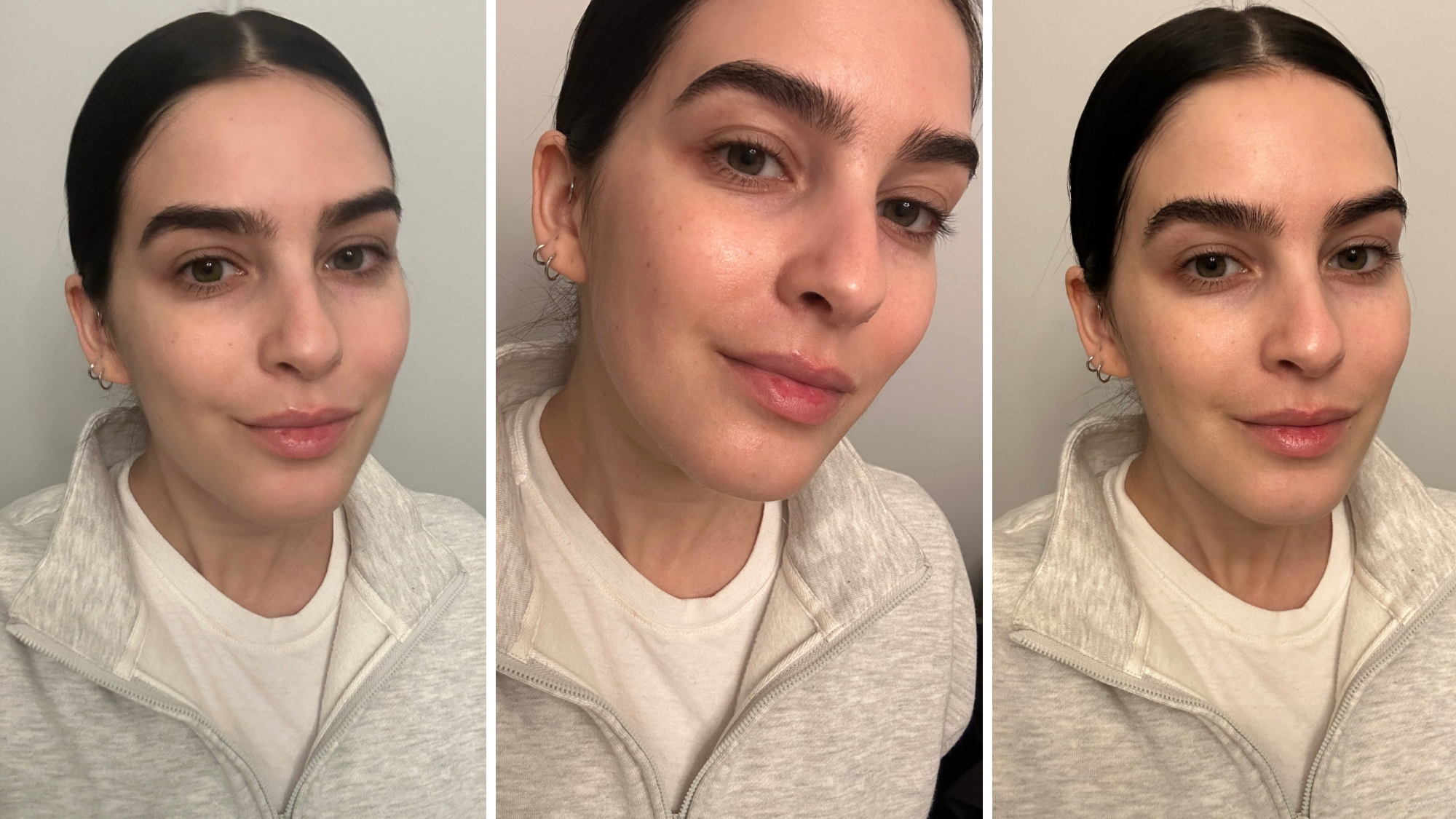
Natura Bissé's peel is a winner for mature skin.
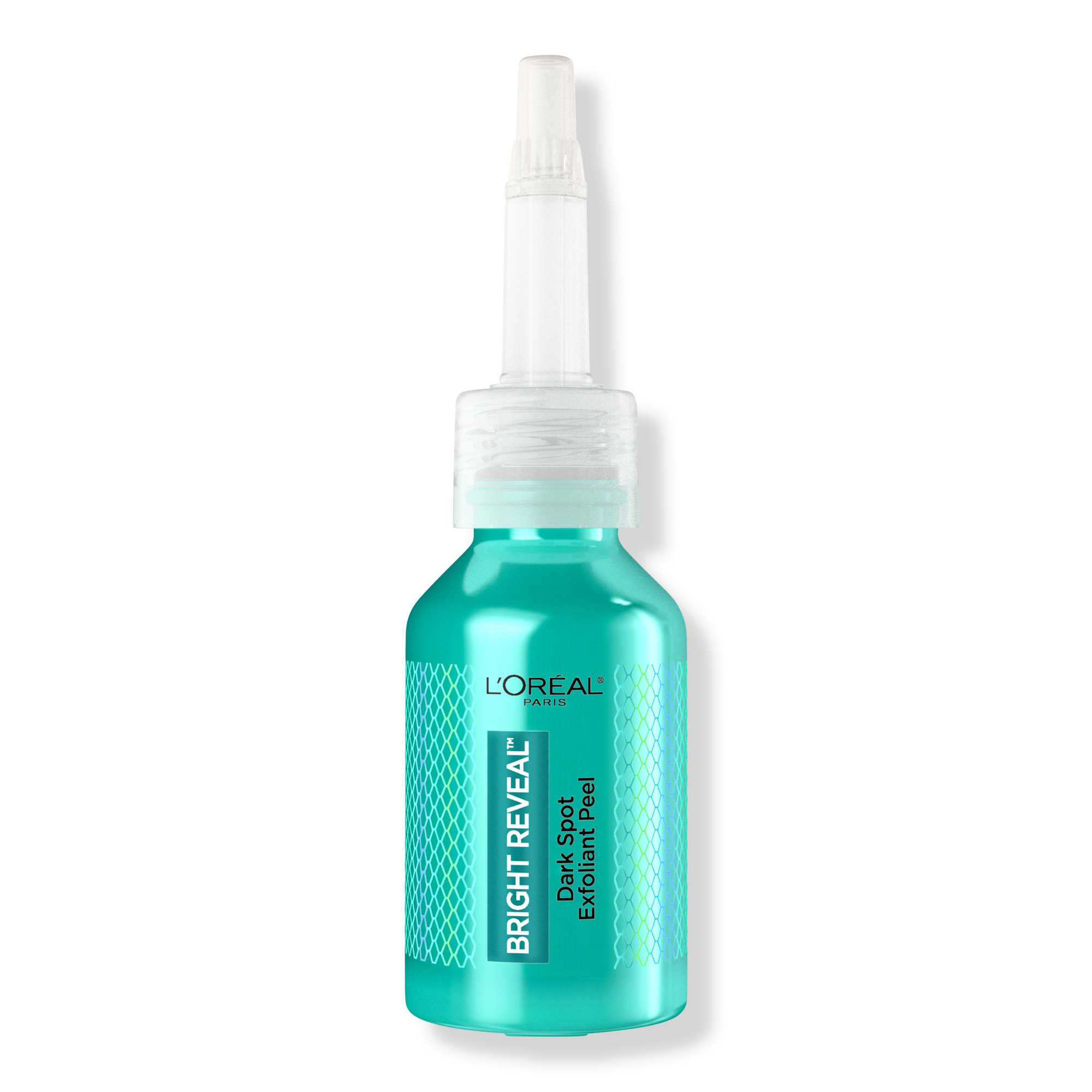
In-office peels can set you back more than a few bucks, but you don't need to shell out hundreds for a solid peel. Enter: L'Oréal Paris' affordable yet powerful formula, which is packed with AHAs, BHA, and PHA that improve skin's texture and tone. It can also be used four times a week, which means you'll see major progress after just a few uses.
Key Ingredients: Glycolic acid, lactic acid, mandelic acid (exfoliating)
Who It’s For: Hyperpigmentation, acne-prone skin
Size: .85 oz
What We Love: Affordable; brightening
What We Don't: Small size
Review for MC: "This option is small but mighty. Though dark spots aren't one of my main skincare concerns, I'll take all the brightening I can get, and this got the job done before I got some beauty sleep. I massaged a thin layer of the formula into my complexion and washed it off after the suggested 15 minutes. In the morning, my skin felt slightly tight, but the leftover glow was worth it." — Taylore Glynn, Contributing Beauty Writer
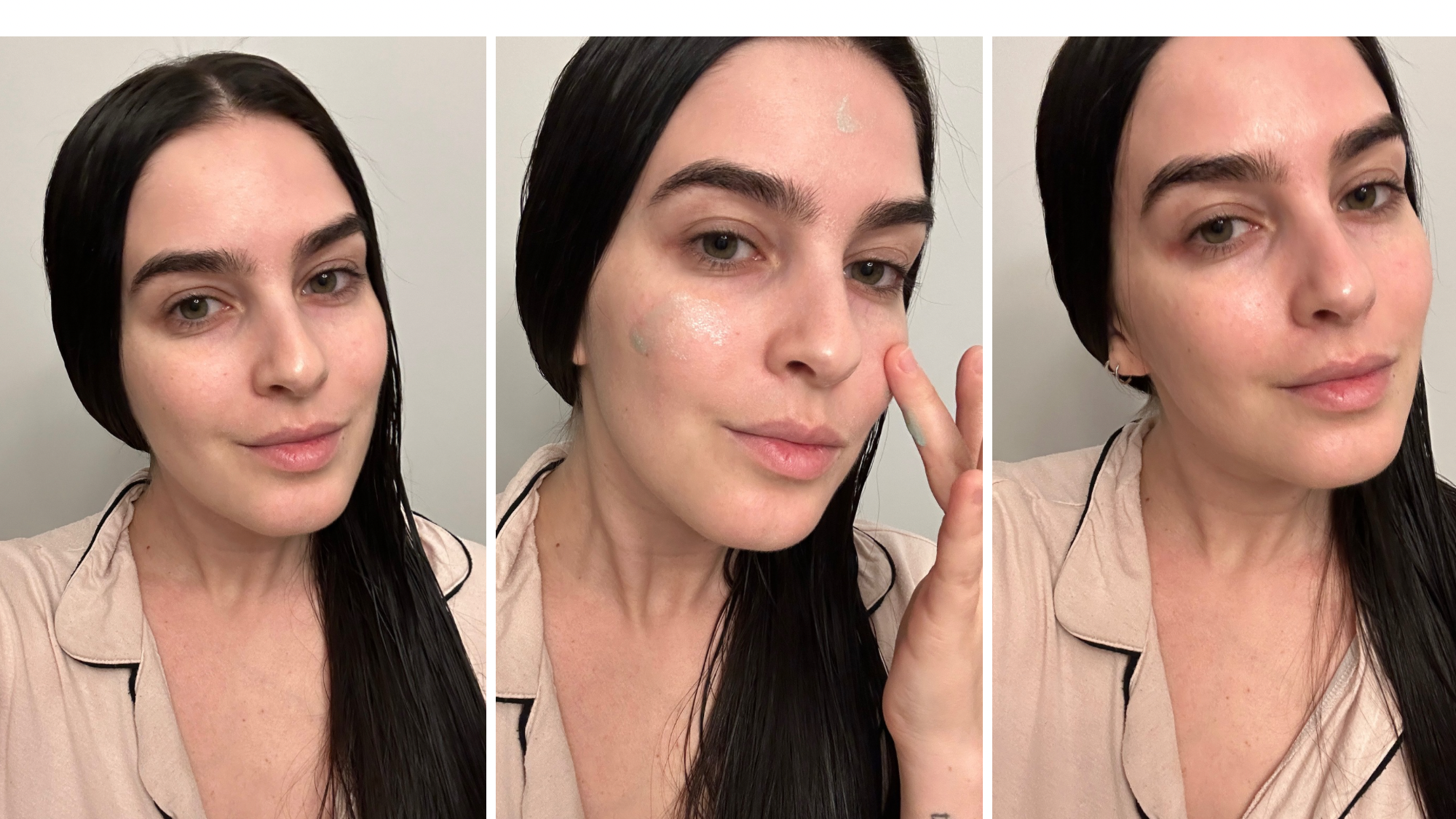
Taylore Glynn applying L'Oréal Paris Exfoliant Peel.
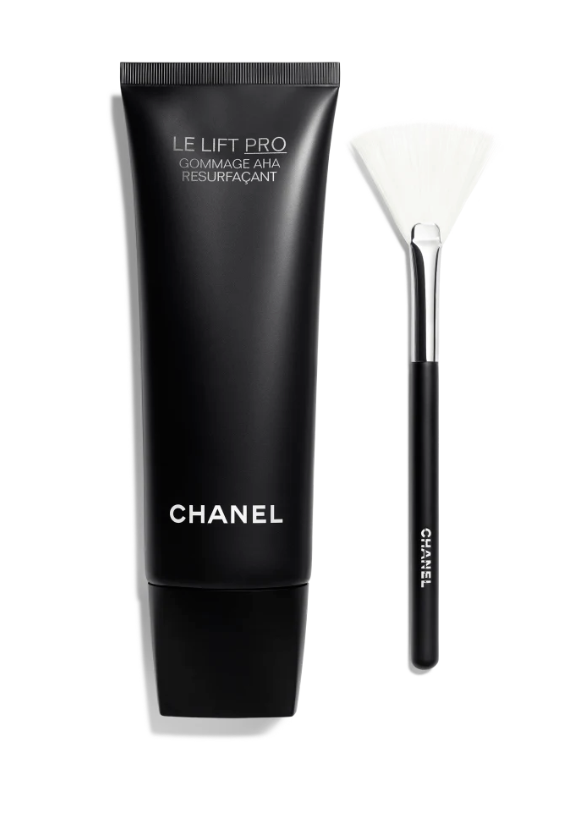
This at-home chemical peel is designed to be as luxurious as it is rejuvenating. Unlike most of Chanel's skincare, this peel is fragrance-free to help minimize irritation. It's packed with a blend of alpha-hydroxy acids that, while effective, shouldn't cause your skin intense stress. The texture is silky-smooth, so all you have to do is apply a thin layer with the accompanying brush, let it sit for five minutes, and then rinse away. It works well on its own, but also doubles as a great supplement between professional treatments.
Key Ingredients: Glycolic acid (exfoliating), phytic acid (exfoliating)
Who It’s For: All skin types
Size: 3.4 oz
What We Love: Smooth texture; fragrance-free; effective
What We Don't: Higher price point
Review for MC: "The first thing I noticed about this formula is its creaminess, which made it extra comfortable to wear before bedtime for the quick five minutes it took to work. While it left me with some slight redness in my more sensitive areas (like my forehead and under my nose), the issue had resolved by morning. Even better, my skin felt super soft, which is the best way to start the day." — Taylore Glynn, Contributing Beauty Writer
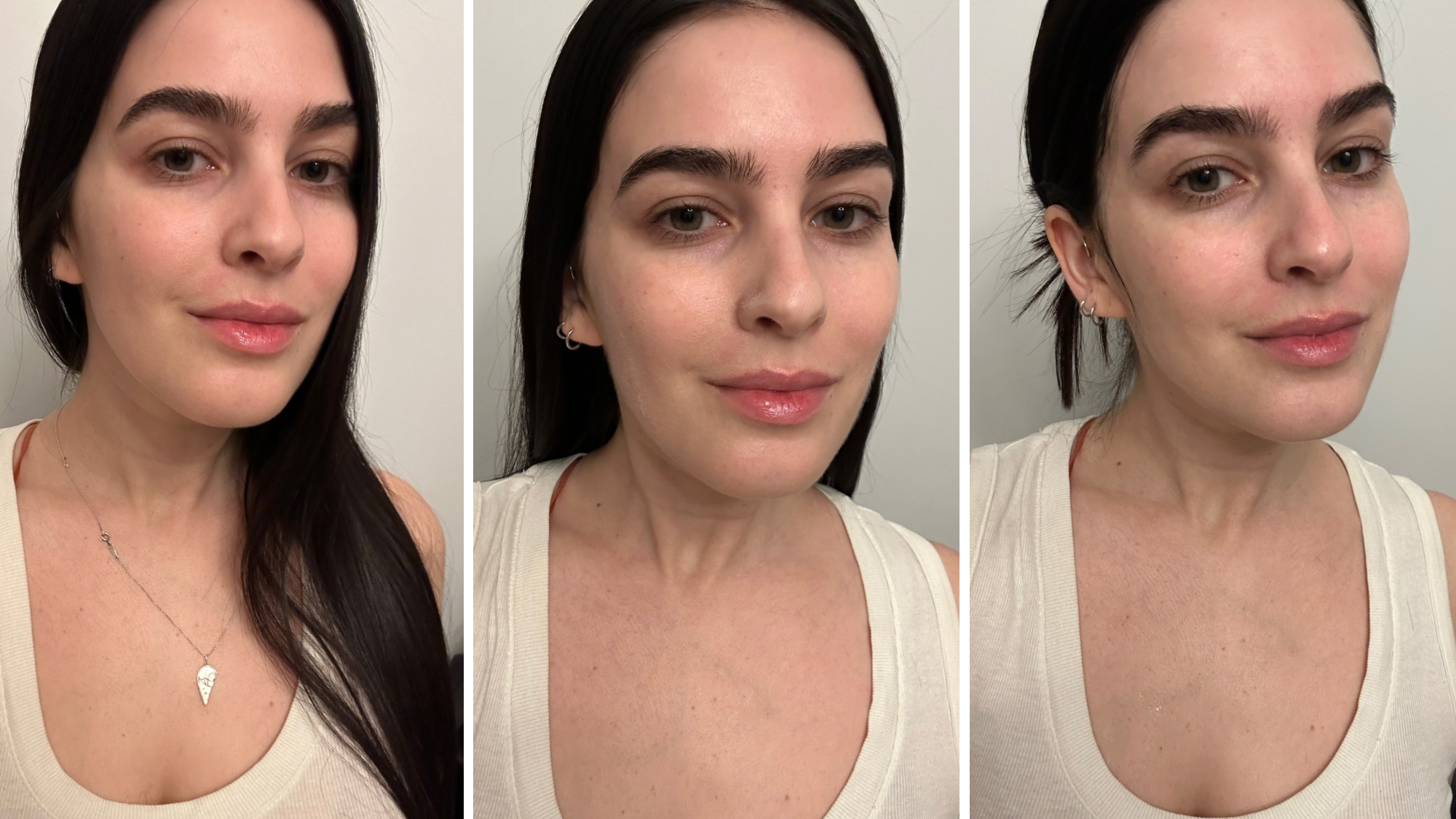
If you've got the means to splurge, Chanel's peel is worth it.
Other At-Home Chemical Peels I love
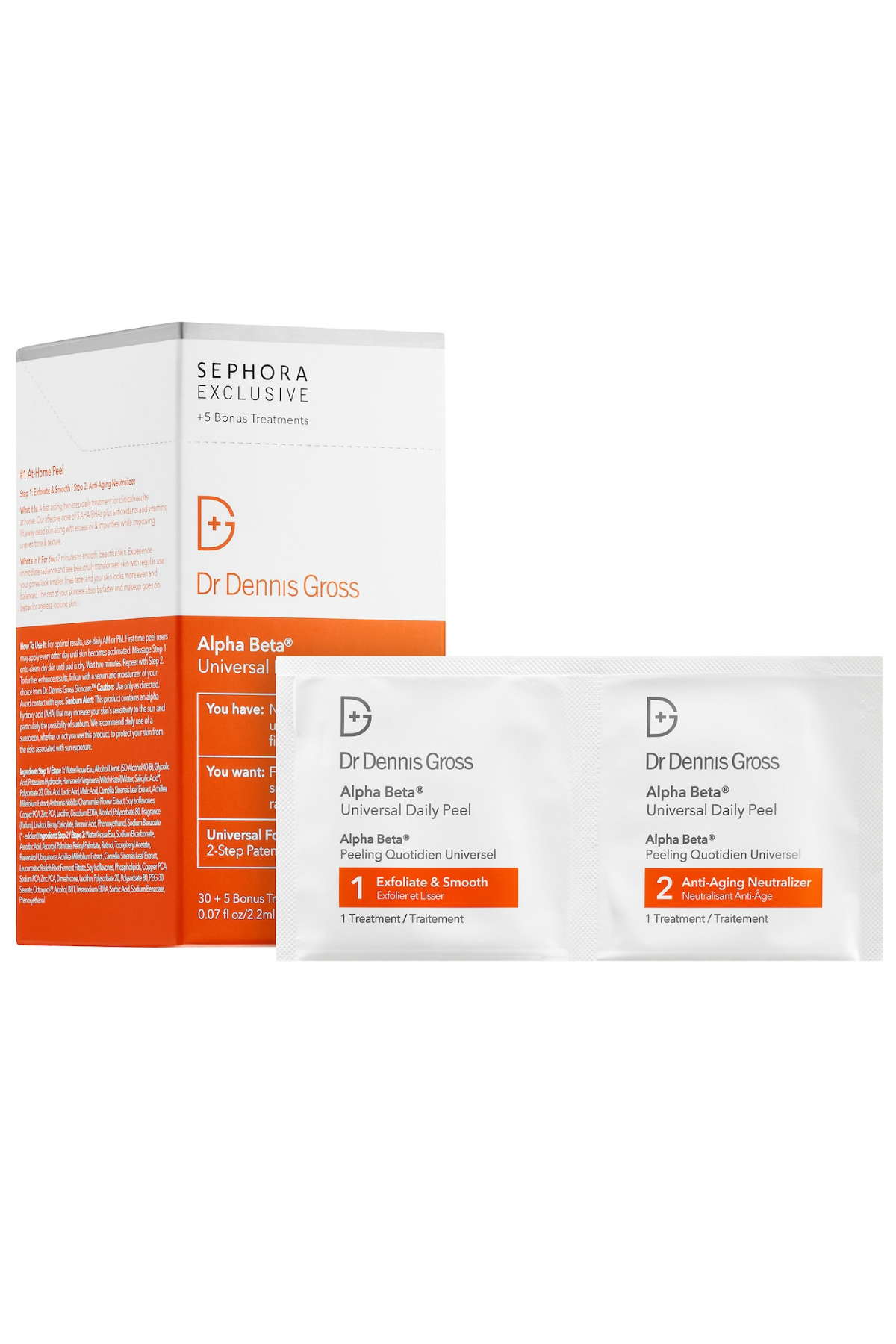
Chances are, you've seen Dr. Dennis Gross' peel pad before. It's everywhere, because it's really, transformative. It's packed with five different acids—a combination of AHAs and BHAs—to target concerns ranging from acne to dark spots and dry patches. These pads are the real deal, so don't charge full speed ahead if you have sensitive or dry skin. Start out using them just two times a week.
Key Ingredients: Glycolic acid (exfoliating), lactic acid (exfoliating), resveratrol (renewing), green tea extract (calming)
Who It’s For: Normal, dry, combination, and oily skin types
Size: .07 oz (35 packets)
What We Love: AHAs and BHAs; Multi-benefit
What We Don't: Might be too intense for some
Customer Review: "This product has been amazing in clearing up my face. It's so smooth after each treatment and you can really see all the gook on the pad even after it's been washed. I have seen a significant improvement on my smile lines. They are not as defined and seem to be smoothing out. This is way better than scrubs or harsh cleansing tools. It's the perfect amount of exfoliation. I now use it at least once a week as maintenance after using one sensitive skin treatment." – Sephora
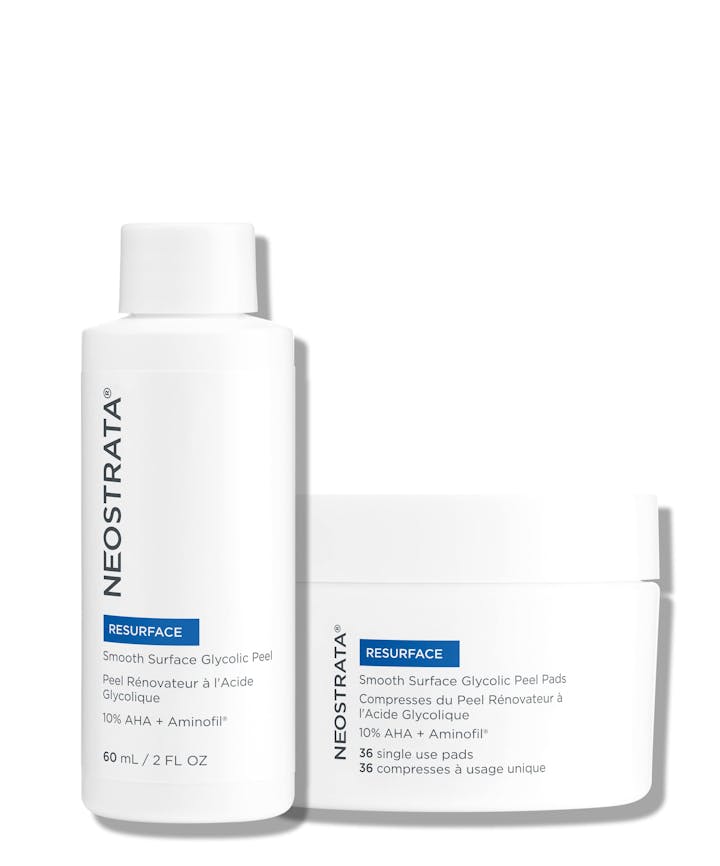
Neostrata created this at-home kit to make you feel like you're playing scientist while ensuring the end formula is completely safe. You pour the liquid solution, loaded with glycolic acid, on top of the jar of pads. Let the cotton rounds soak up the liquid for at least a few hours, and then you will have a whole jar of ready-to-use peel pads. They're gentle enough to be used twice daily, but if your skin is on the sensitive side, definitely work up to it.
Key Ingredients: Glycolic acid (exfoliating), amino acids (hydrating)
Who It’s For: All skin types
Size: 2 oz liquid, 36 pads
What We Love: Easy to use; gentle
What We Don't: Doesn't last long
Customer Review: "If you have sensitive skin then this is not for you because it rather drying and can burn a bit after exfoliating. That being said, I feel like my skin is so much tighter and feels so smooth after I use this and then moisturize." – Dermstore
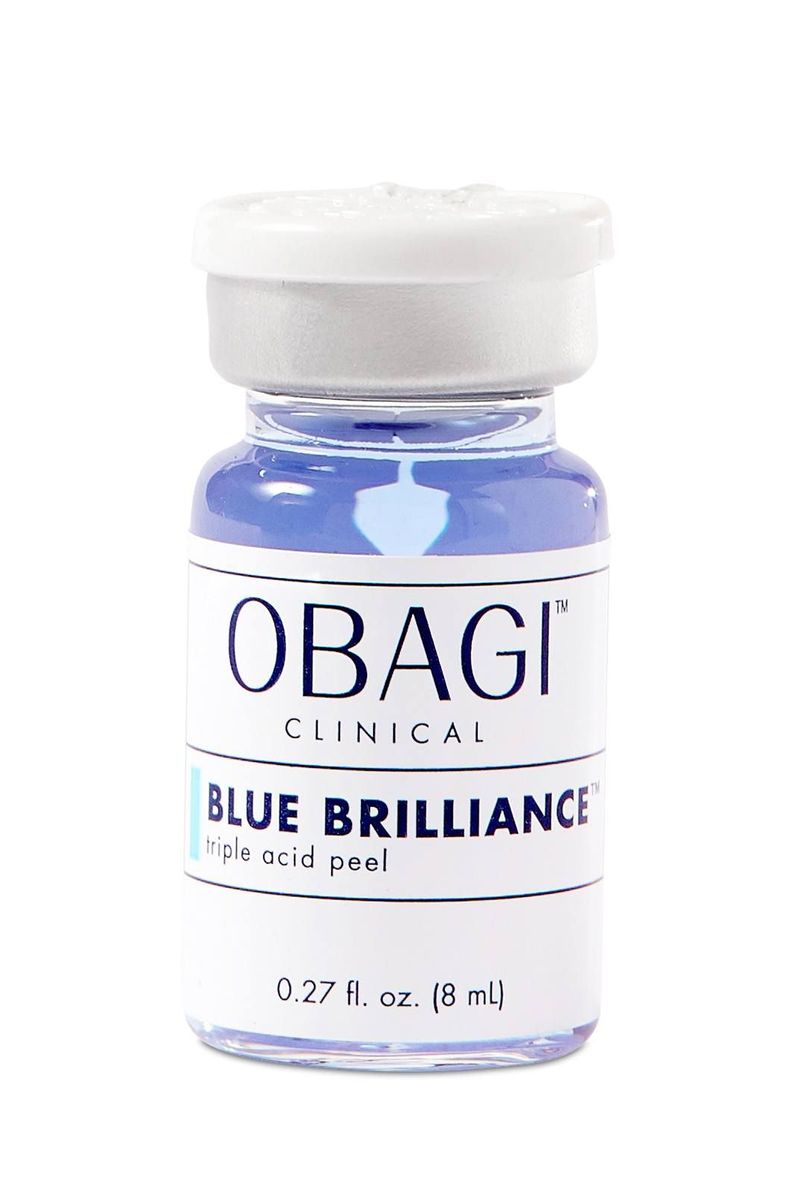
This is the closest you'll get to a professional-grade peel in the comfort of your own home. Three acids (glycolic, salicylic, lactic) combine for one of the strongest exfoliating treatments available over the counter. While the retexturing and skin-smoothing results are undeniable, please proceed with caution. This formula is quite intense, so read the instructions, set your timers appropriately, and steer clear if you have sensitive skin.
Key Ingredients: Glycolic acid (exfoliating), salicylic acid (pore cleaning), lactic acid (exfoliating)
Who It’s For: Combination, dry, and oily skin types
Size: .27 oz
What We Love: Very effective; smoothing; retexturizing
What We Don't: Should be used with of caution
Customer Review: "I love this peel so much! It's great for a fast at-home peel that gives great results. After each use, my skin is super soft, smooth, and continues to glow days after. I always receive the best compliments after using this product. I really do recommend and will buy again." – Target
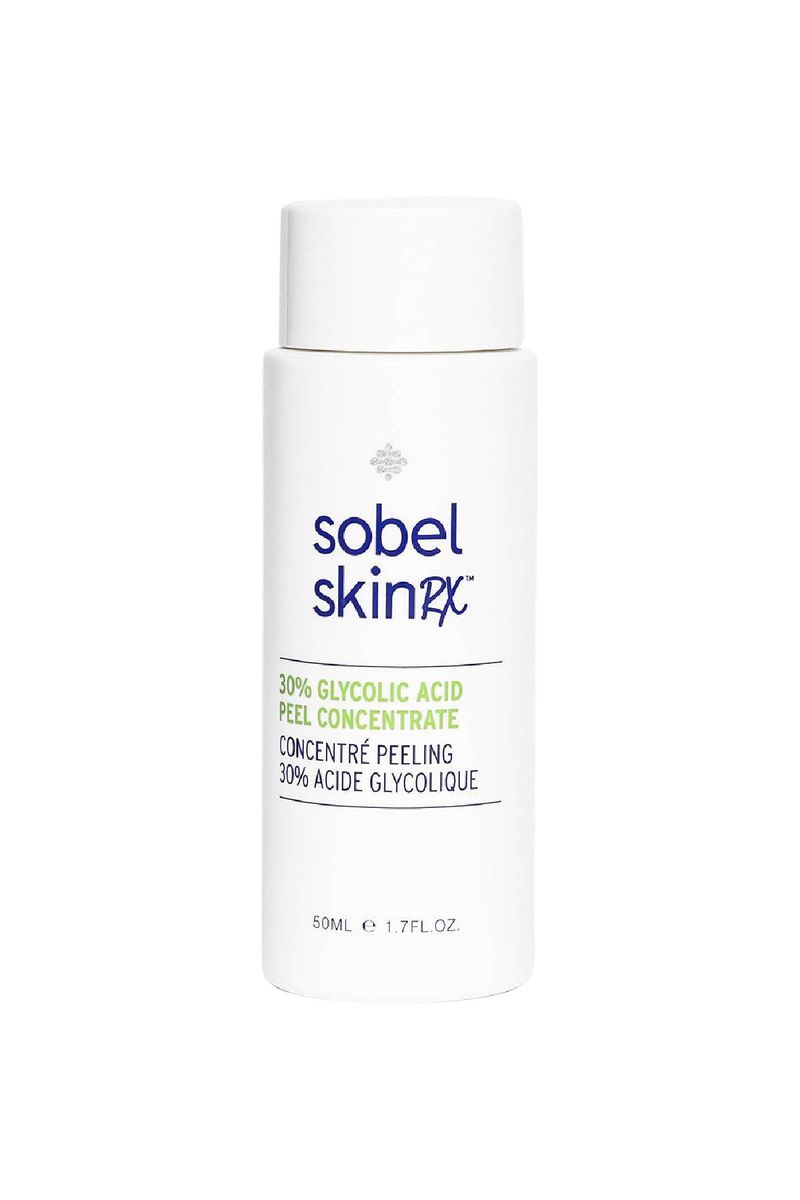
This 30 percent concentrate of glycolic acid only stays on for two minutes and is especially beloved by those who are looking for chemical peels to treat acne scars, acne, or melasma. Its formula contains the obvious glycolic acid, along with soothing and calming chamomile, to create a balanced, clear, and exfoliated complexion. This peel is on the stronger side, so don't leave it on longer than instructed, and avoid it if you have sensitive skin.
Key Ingredients: Glycolic acid (exfoliating), chamomile (calming)
Who It’s For: Scarring, melasma, and acne-prone skin
Size: 1.7 oz
What We Love: Great for acne and melasma; powerful
What We Don't: Not for sensitive skin
Customer Review: "This is the best thing to ever happen to my skin. I had acne prone skin with melasma and large pores and i had tried EVERYTHING....nothing worked until I incorporated this into my skincare routine. I use it twice a week and I leave it on for five mins. I am on my third bottle and i now have clear skin....my skin has evened out, I barely breakout and my pores are barely noticeable. I can go out without makeup in confidence and I am so happy." — Sephora
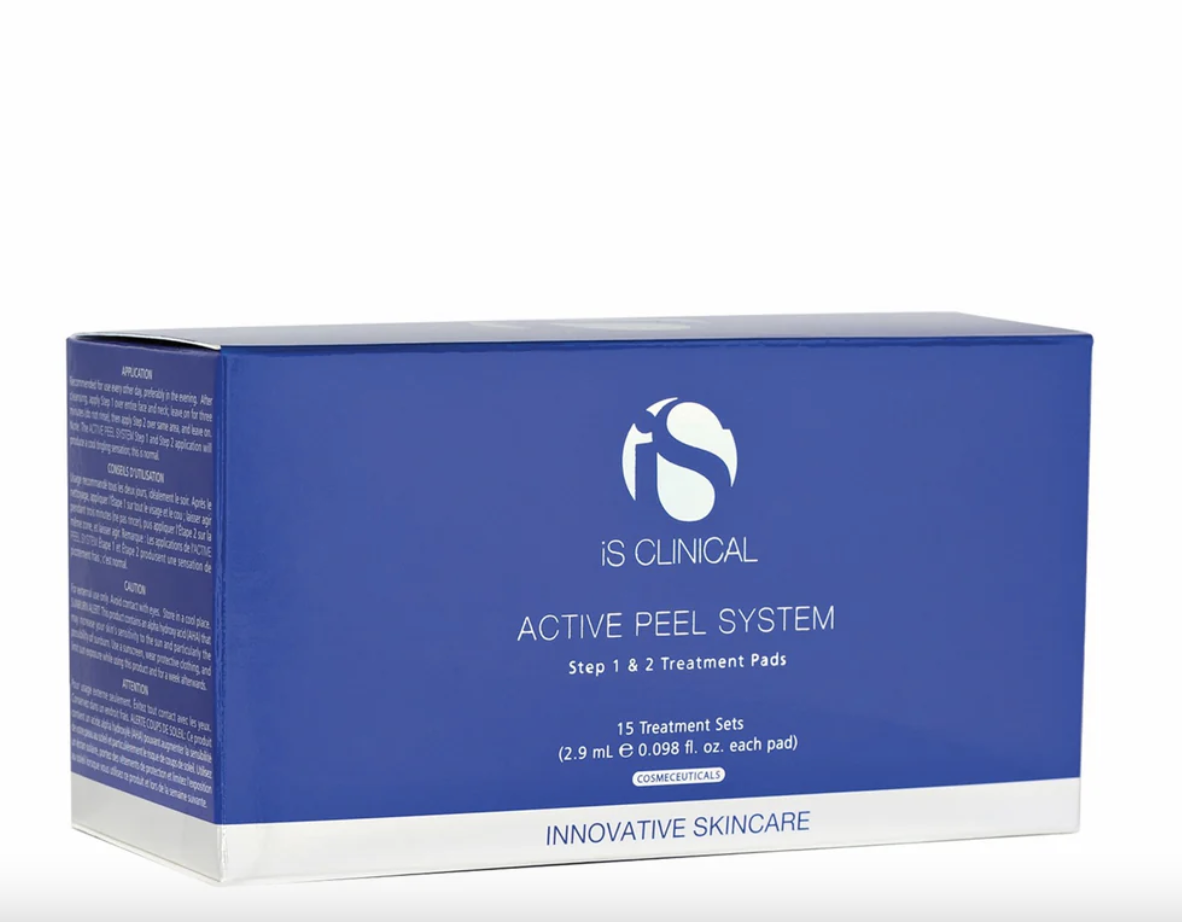
As someone who's struggled with rosacea for years, I can confidently and comfortably confirm that these pads are game-changers. They're gentle, so my skin barrier remains intact (and my rosacea under control), but they still have powerful botanical and citric acids to provide effective exfoliation. The initial tingling sensation is even cooling in nature, which feels great against my naturally hot skin.
Key Ingredients: Citric acids, copper tripeptide-1
Who It’s For: Combination, dry, oily, and rosacea-prone skin
Size: 15 treatment sets
What We Love: Easy to use; good for rosacea
What We Don't: Small batch per box
Customer Review: These wipes are absolutely AMAZING!! They work to clear acne, black heads, rough skin. They work like little facials. I can’t live without these." — Bluemercury
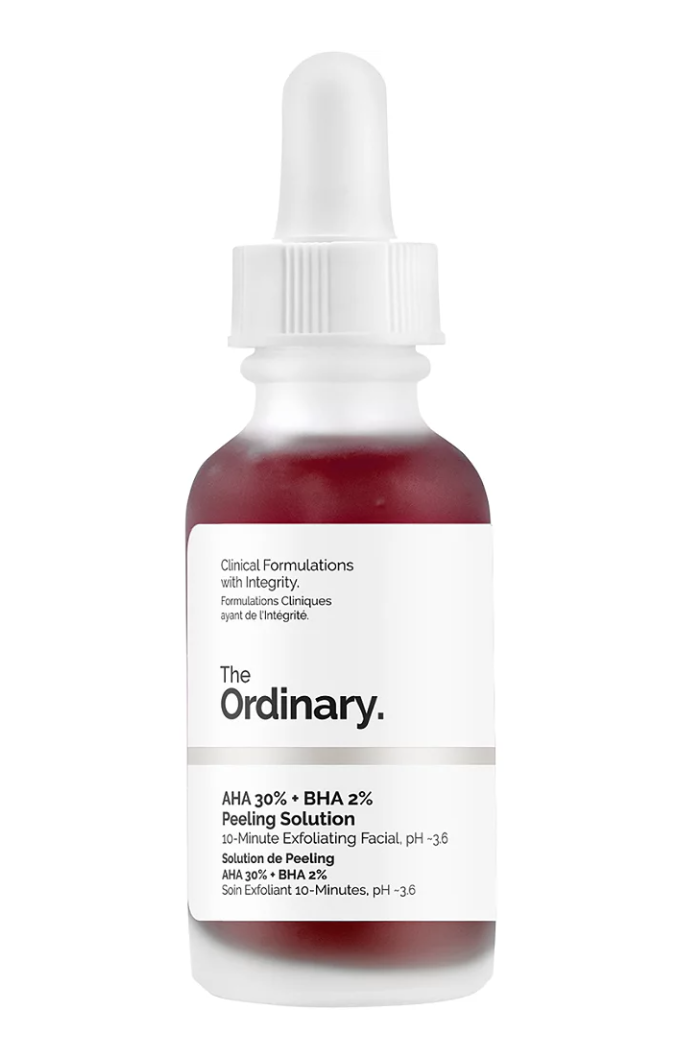
Dr. Englemen says a peel containing BHAs is ideal for treating acne. "BHAs, like salicylic and beta hydroxy, are best for issues like large pores, blackheads and pimples," she explains. "These acids have keratin-dissolving properties that can break down dead skin cell build-up and decongest pores." This two-percent BHA and 30-percent AHA solution will work wonders for acne-prone skin—just don't leave it on for more than 10 minutes because you can overdo it.
Key Ingredients: AHAs (exfoliating), BHAs (exfoliating), willow bark extract (controls sebum production)
Who It’s For: All skin types
Size: 1 oz
What We Love: Derm-approved; affordable; good for acne
What We Don't: Some report burning and stinging upon application
Customer Review: "I have bought this product twice now and I'm still in love with it! I am a sucker for exfoliating products and when i first tried this i thought there was no way my face would feel "polished," but boy was I wrong. My face feels so soft and refreshed after every use. Always clears up whatever breakouts I get. I will warn you it does have a slight burning/tingling sensation when you first use it. But the more frequently you use it, that burning feeling goes away." — Ulta
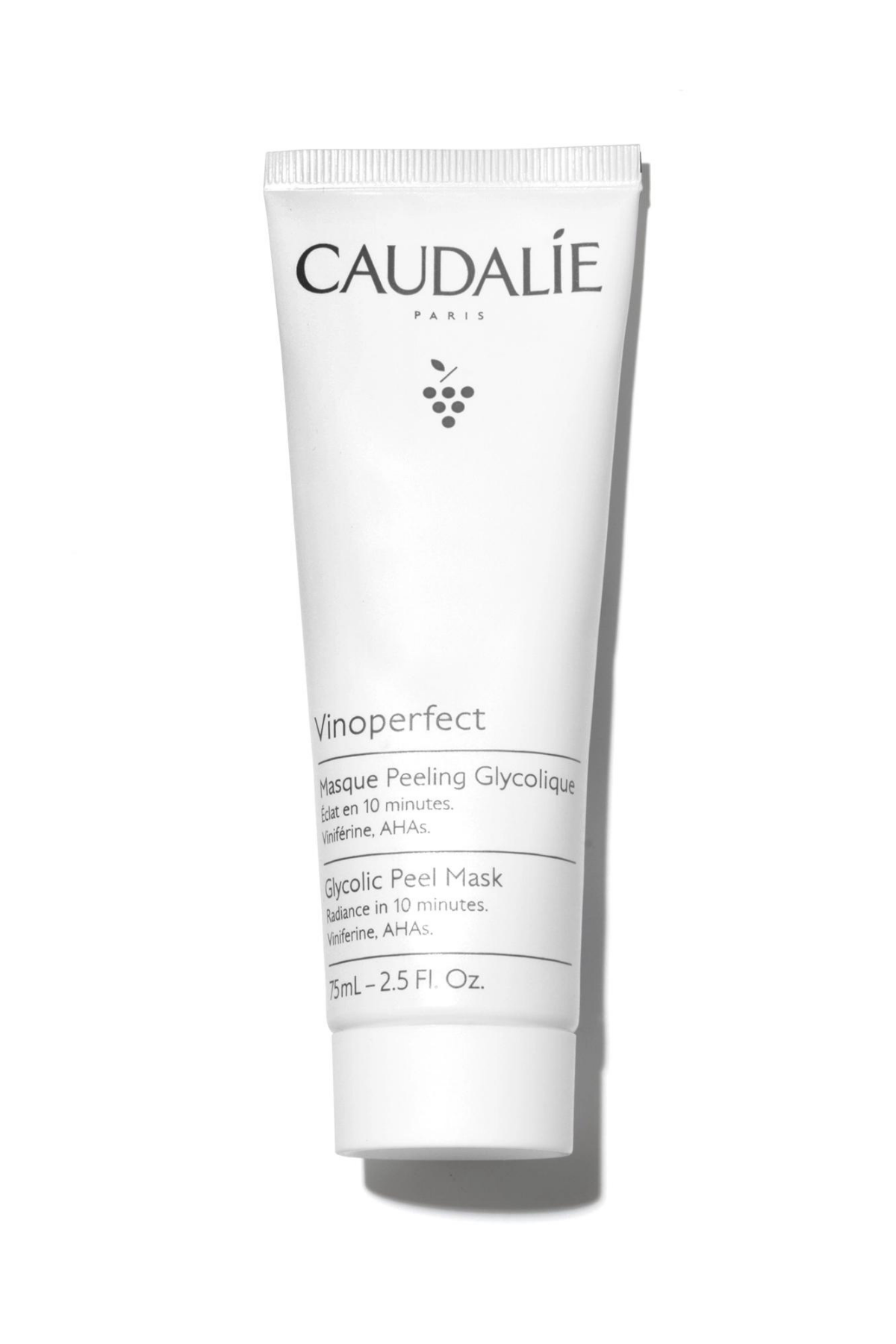
Dull skin has nothing on this exfoliating face mask. The 10-minute fix is a radiance-boosting, dead-skin-sloughing, glow-giving miracle worker. It’s packed with gentle AHAs and the brand's proprietary Viniferene, which is ideal for reducing the look of dark spots. Unlike other chemical peel masks, which will tighten and need to be peeled off, this has an unexpectedly creamy texture that won't sting or tingle upon application.
Key Ingredients: Glycolic acid (exfoliating)
Who It’s For: Combination, dry, and oily skin types
Size: 2.5 oz
What We Love: Great for dark spots; vegan; creamy texture
What We Don't: Not for sensitive skin
Customer Review: "Every time I use it, my skin feels amazing and looks so fresh. I use it at night mostly, and then slather on hydrating products after cleaning it off, and I use this twice a week religiously. I feel like my skin looks healthier, especially with pregnancy hormones doing a number on my skin, this helps clear and soften and calm it." –Sephora
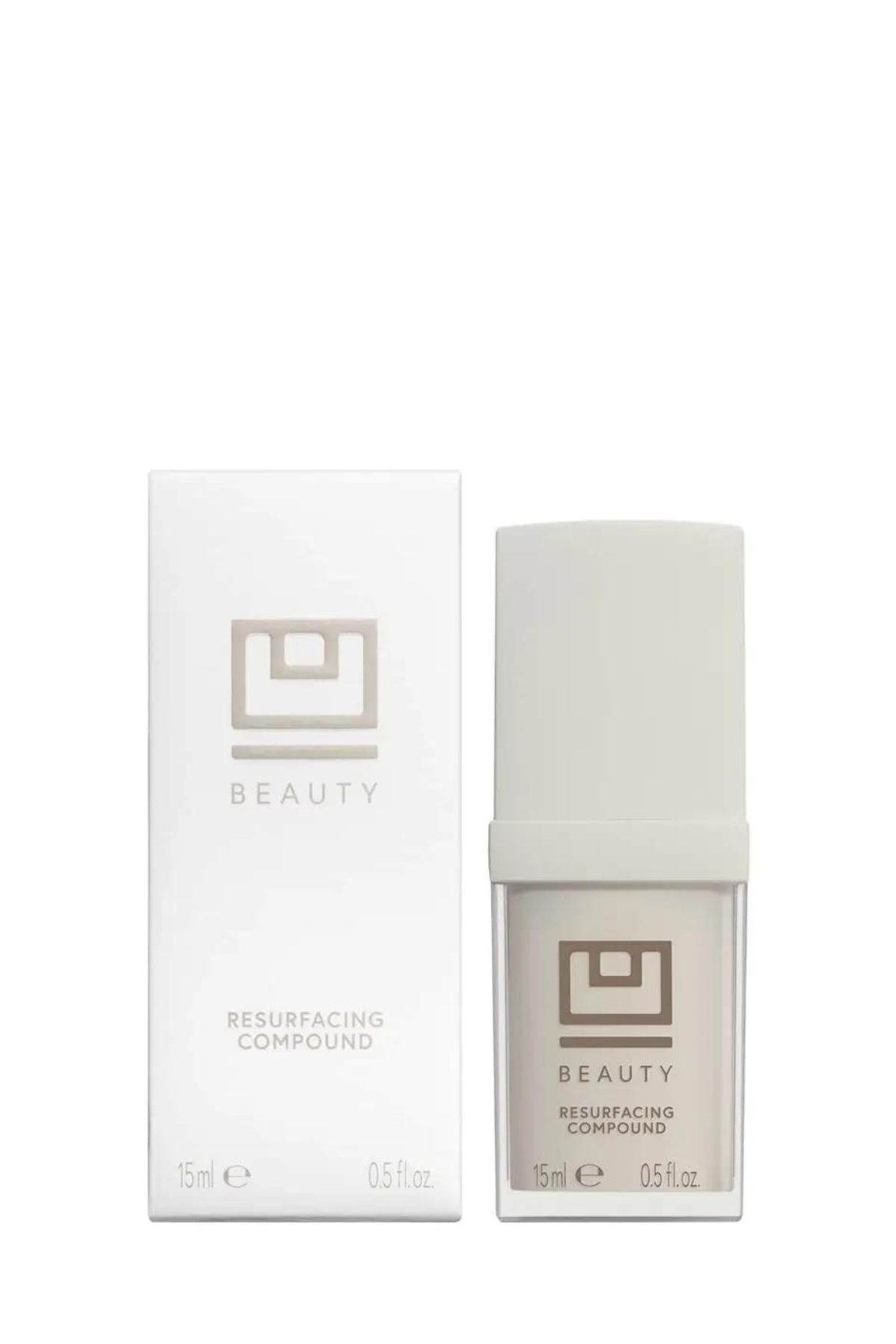
It might not have "peel" in the name, but this U Beauty holy grail delivers the same astonishing results. The product contains a balance of acids, antioxidants, and retinol, which work in tandem to create baby-soft skin. With continued use, your complexion will look glowier, healthier, and smoother than ever before.
Key Ingredients: Retinol (resurfaces), glycolic acid (exfoliates), antioxidants (environmental protection)
Who It’s For: All skin types
Size: .5 oz
What We Love: Can be used around the eyes; Fast-acting results
What We Don't: Some report breakouts
Customer Review: "This is the only skincare product I have tried that dramatically changed my skin overnight. I could feel my skin tightening and softer immediately. I also love how it replaces three products in one making my routine so much simpler." — U Beauty
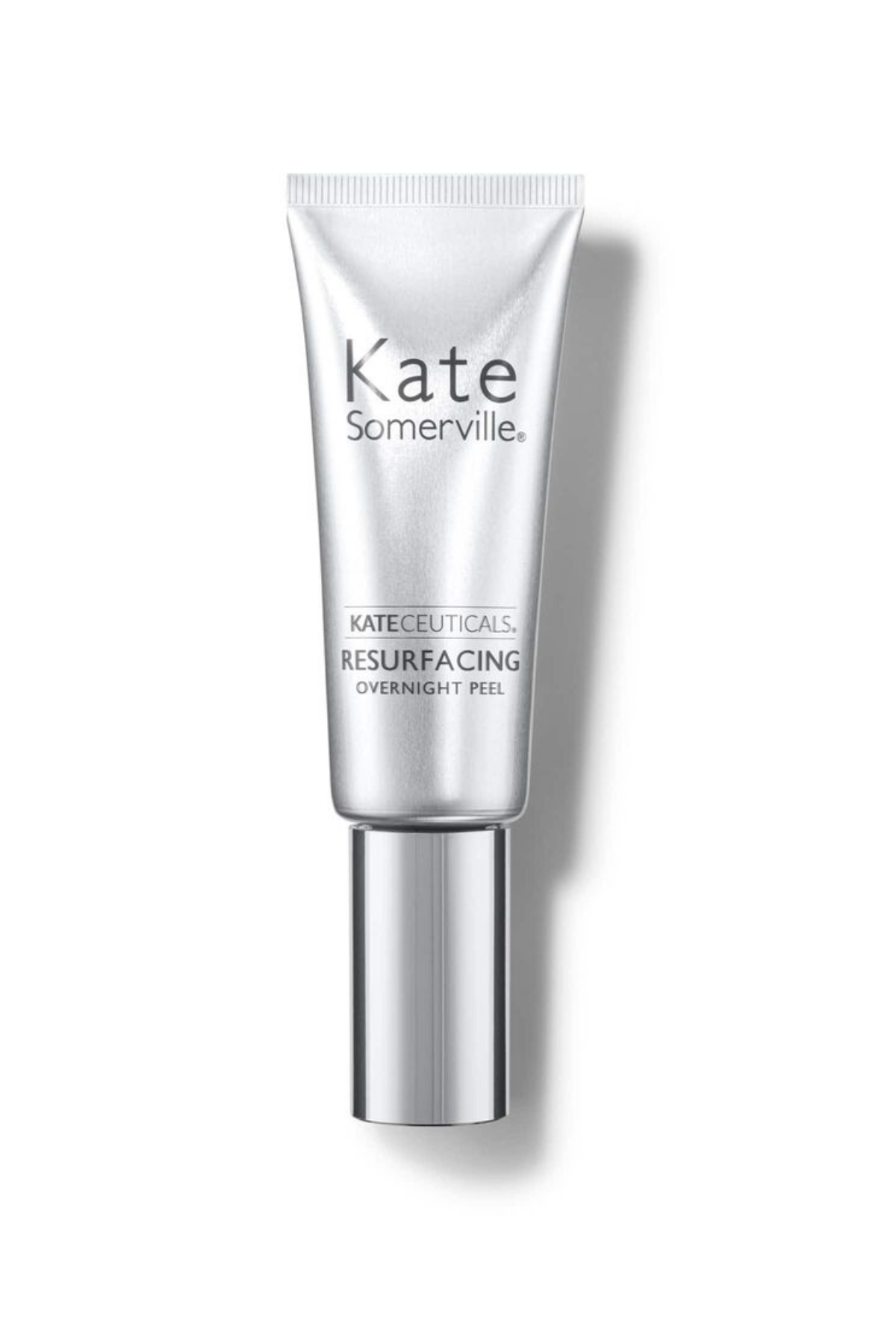
Let me preface this by saying that having bumps and rough patches is a completely normal part of being human. If you do want to smooth out some of that texture, though, there’s no better product than Kate Somerville's. In addition to glycolic acid, the formula includes retinol and niacinamide, two ingredients that speed up cell turnover and help even skin texture and tone.
Key Ingredients: Glycolic acid (exfoliates), retinol (speeds up cell turnover), niacinamide (evens tone)
Who It’s For: All skin types
Size: 1 oz
What We Love: Smooths texture; Contains retinol
What We Don't: Irritating to some
Customer Review: "This product is strong, but it worked well for me once I figured out the right frequency for my skin. I generally don't have sensitive skin, so I started using it about twice per week all over my face and neck, but I noticed some dry skin and peeling on my cheeks after a little while of using it. Since then, I've reduced use to once per week, and I'm very satisfied with the results. My skin is smoother and is more even in tone. The product is kind of sticky once applied, but I found waiting about 20-30 minutes for it to dry/set in before going to bed helps." – Sephora
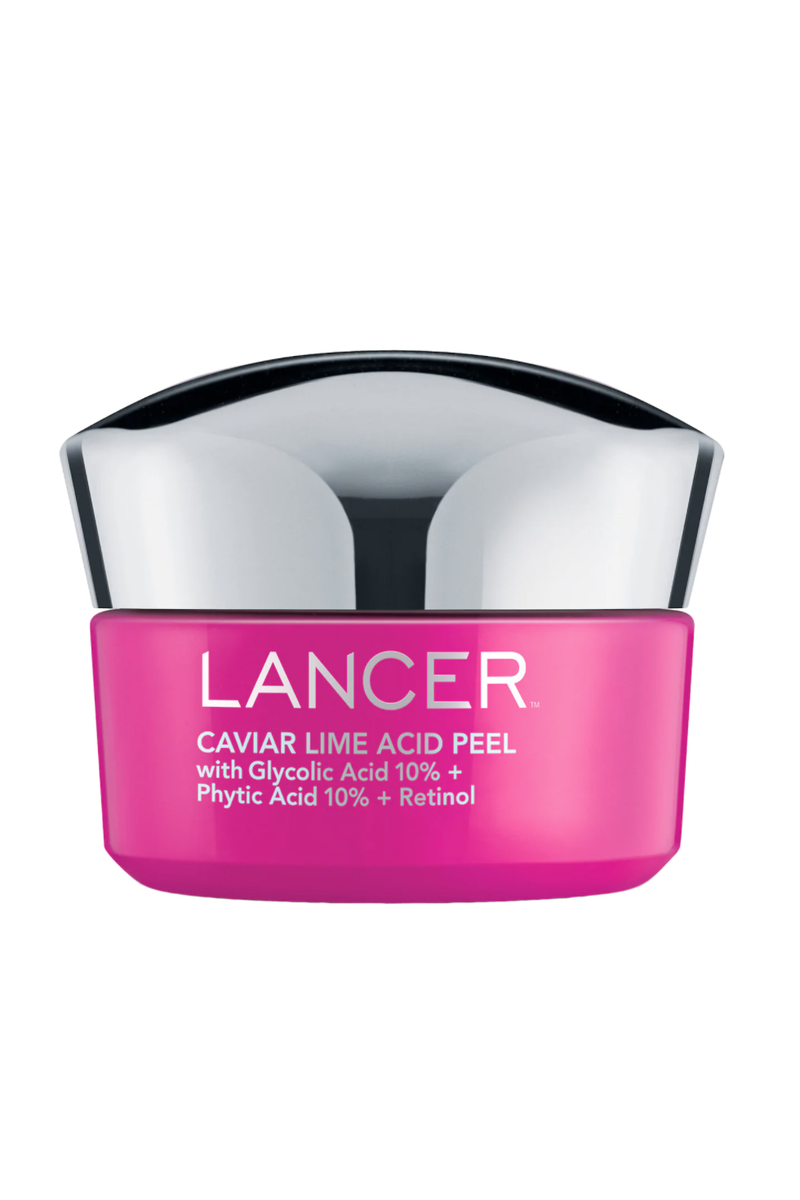
Lancer Skincare is the way to go to target tone and texture. This 15-minute wash-off treatment leverages caviar lime, which is naturally rich in AHAs, with retinol, an anti-aging powerhouse that speeds up cell turnover. Together, they plump up fine lines and reduce patchy tones. The outcome? An ultra-brightening treatment that gives an airbrushed look to pores. It's also going to make your complexion a lot less oily.
Key Ingredients: Retinol (speeds up cell turnover), caviar lime (exfoliates)
Who It’s For: Combination, dry, oily, and mature skin
Size: 1.7 oz
What We Love: Controls oil; Helps with texture and tone
What We Don't: Not a lot of product in the jar
Customer Review: "While it is a steep price for this jar, I do think the results are worth it! I started off using it once a week to assess my threshold and have since upped it to twice a week. I can definitely tell a difference in my skin as it appears smoother, shinier and some of my dark spots have faded a bit. I know I will eventually need professional intervention but until then, this Caviar Lime Peel will be my go to." — Dermstore
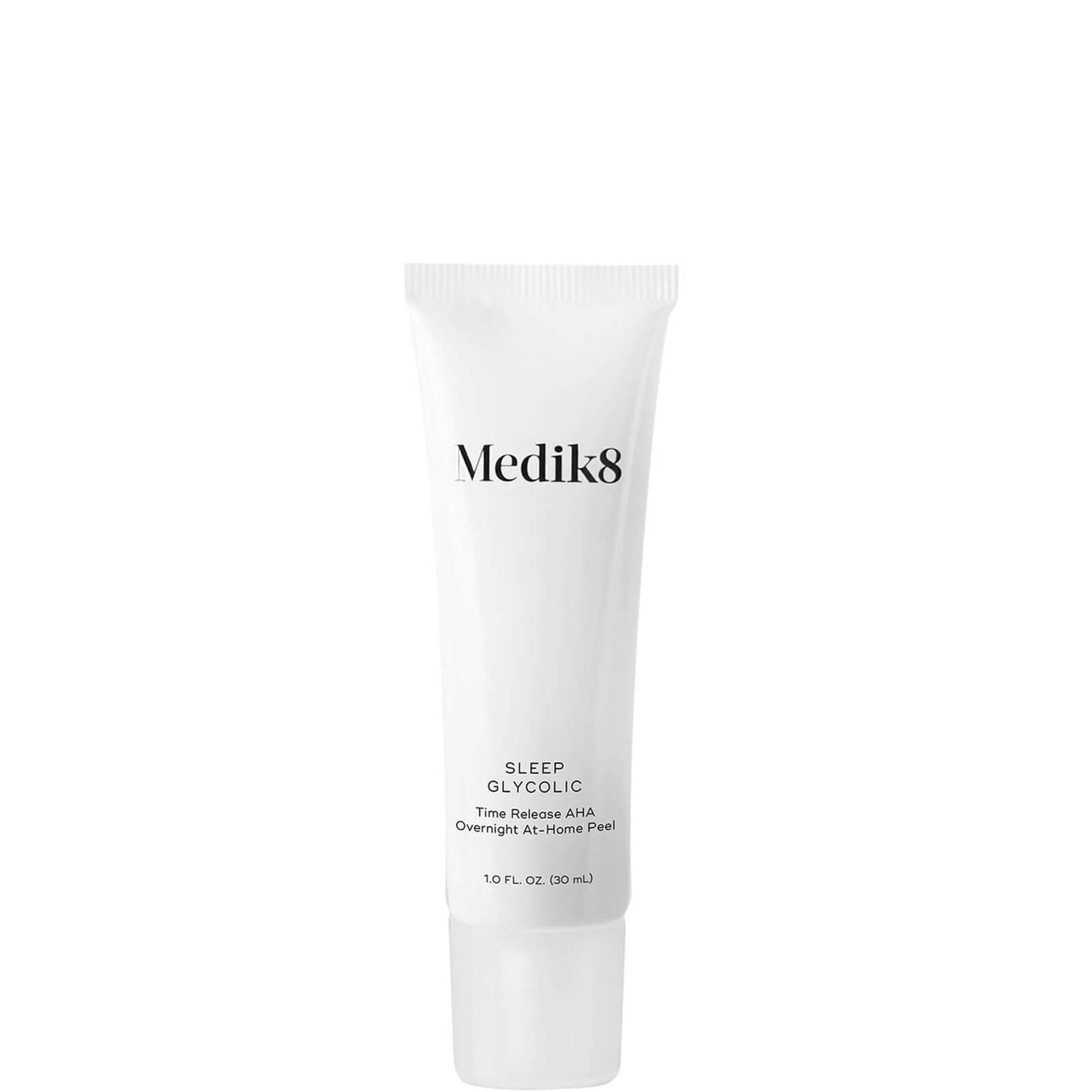
An overnight treatment is your best bet if you need a super quick, skin-brightening fix. This particular glycolic acid option has no downtime whatsoever. Just apply the 10 percent treatment to your face before bed, catch some rest, and wake up to a brighter, more refreshed complexion. It's designed with timed release activities, so your skin won't get peely or irritated.
Key Ingredients: Glycolic acid (exfoliating)
Who It’s For: All skin types
Size: 1 oz
What We Love: No irritation; Goes on like a normal skincare product
What We Don't: Might feel a little heavy
Customer Review: "Since using Sleep Glycolic in my night time routine (I use it usually two times a week and I can feel the tingling sensation on my skin when first applied), I have definitely noticed that my skin has a definite glow the next day. Skin feels SO soft and silky upon waking and after completing my morning routine, the glow continues." — Dermstore
What Should I Look for in a Chemical Peel?
- Type of Acid
When choosing a DIY peel, your skin type should be your first consideration. "Look at the acids in the peel, and make sure they target the issue you are trying to remedy," Dr. Engelman says. For example, someone with acne-prone skin might want to seek out a salicylic acid peel, while someone with sensitive skin looking to target hyperpigmentation is better suited with glycolic acid.
- Strength of Acid
The Cosmetic Ingredient Review Expert Panel recommends that companies use glycolic and lactic alpha-hydroxy acids in concentrations of 10 percent or less, in solutions with a pH of 3.5 or greater, when formulating consumer products. As for salicylic acid? Two percent is the maximum concentration in over-the-counter products.
- Medium
You'll notice that the best at-home chemical peels on this list range from peel pads to overnight treatments. While the version you choose is largely personal preference, it's worth noting that short-term, wash-off products will typically have less of an impact than leave-on formulas that can work overnight. However, the latter is necessarily better. Wash-off products are generally ideal for more sensitive or dry skin types.
Is an At-Home Chemical Peel Safe?
First, a reminder: Using a professional-grade product at home is unsafe. Those high-intensity acids should only be used by doctors. “Due to a wave of how-to YouTube videos and consumer accessibility and professional products available through vendors like Amazon, I am seeing more and more instances of serious damage done to the skin—all in a patient's bathroom," says board-certified dermatologist Dennis Gross, M.D., FAAD, and founder of Dr. Dennis Gross Skincare. "A licensed professional must administer higher concentrations of acid; they can damage skin if they're not neutralized properly."
Using a peel pad, mask, or serum specifically designed for at-home use is safe.
At-Home Chemical Peel vs. Professional Chemical Peel
At-home chemical peel formulas have lower concentrations of acids (read: glycolic, lactic, salicylic), making them safer for at-home use. "In-office peels have stronger concentrations of acids, meaning greater immediate results," says Dr. Engelman. "These need to be administered by a licensed practitioner because of the potential to burn or irritate the skin," she says.
How Often Should I Use an At-Home Chemical Peel?
"The biggest challenge is not to overwork the skin," says Dr. Engelman. “Excessive exfoliation will expose skin, weaken skin-barrier function, and trigger inflammation. If the barrier function is damaged, skin becomes vulnerable to infection from microorganisms, such as bacteria and fungus, and leads to sensitivity and irritation."
As a rule of thumb, start slow. Use an at-home chemical peel once per week or every other week to see how your skin tolerates it. Some products are super gentle and safe for everyday use, while others should only be used once every few weeks. (Editor's note: If you decide to use an at-home chemical peel, it’s even more important to use one of the best sunscreen products, as they can make skin extra sensitive to the sun.)
Why Trust Us
Marie Claire is an expert in skincare, covering topics ranging from the best face washes to the most effective moisturizers and an essential guide to acne. Taylore Glynn is a freelance writer and contributor with nearly a decade of experience in the beauty space. She has sensitive skin, and has personally tested peels to determine their efficacy. She also spoke with two dermatologists about how to choose the best at-home chemical peels for this particular story.
How We Tested
To compile this list of the best at-home chemical peels, we consulted the web and searched through countless customer reviews to find the top-rated options on the market. We also road-tested some of the best at-home peels available and tapped two dermatologists for their expertise on choosing the perfect peel and using it at home.
Meet the Experts
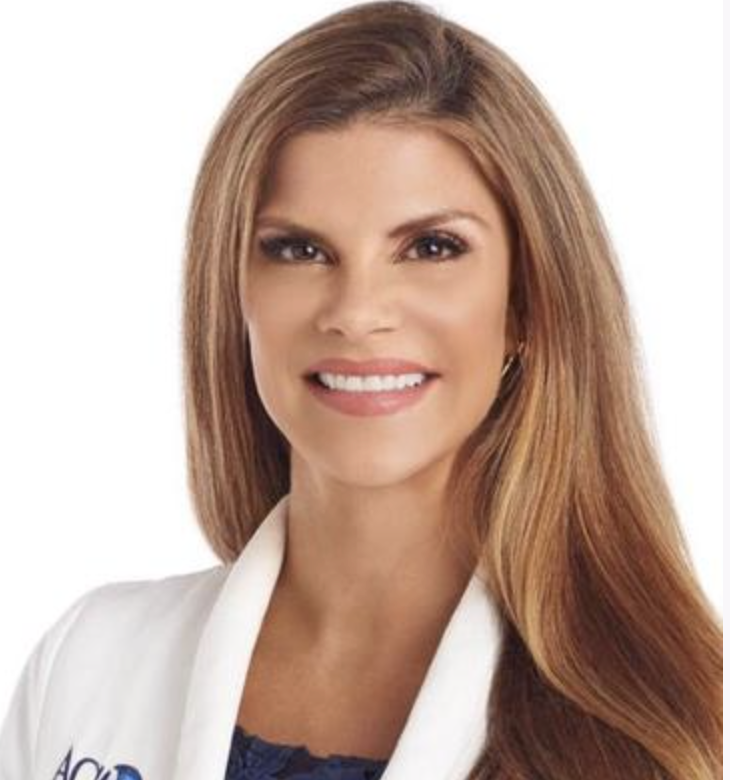
Dr. Dendy Engelman is a board certified dermatologic surgeon at Shafer Clinic Fifth Avenue. Dr. Engelman attended Wofford College in South Carolina and was inducted into Phi Beta Kappa and graduated summa cum laude with honors with a double major in psychology and French. She also played on Wofford's varsity volleyball team. Dr. Engelman earned the Presidential Scholar award while a medical student at the Medical University of South Carolina. She was also awarded the Humanism in Medicine Scholarship primarily for establishing and running a free medical care clinic in Charleston and in Haiti where she continues to serve on an annual mission with her family. Following medical school, Dr. Engelman completed her internship in Internal Medicine at the Mount Sinai Medical Center in Manhattan. In addition to a dermatology residency at the Medical University of South Carolina, Dr. Engelman completed a one-year fellowship in Mohs and dermatologic surgery, lasers, liposuction and vein treatments. She also has extensive training and experience in cosmetic dermatology–including neurotoxins, injectable fillers, and chemical peels. Most recently, Dr. Engelman was appointed Director of Dermatologic Surgery at New York Medical College where she oversees the training of future Mohs surgeons and dermatologists. She is a fellow of the American Academy of Dermatology, American Society of Dermatologic Surgery and American College of Mohs Surgery.
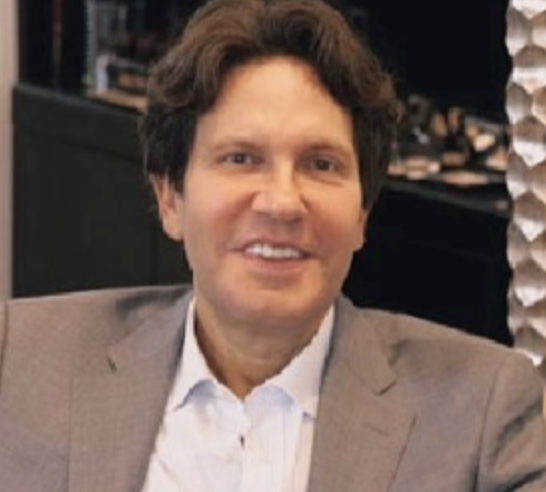
Dr. Dennis Gross is a board-certified dermatologist and dermatologic surgeon. Dr. Dennis Gross has been in practice for 25 years and is the founder of Dr. Dennis Gross Dermatology, an exclusive dermatology practice on 5th Avenue across from Central Park in Manhattan. A top-rated dermatologist, Dr. Dennis Gross is well known and has been featured as one of New York Magazine’s Best Doctors for his expertise in skin health as well as his approach to creating and maintaining the most natural-looking skin utilizing the very latest state-of-the-art cosmetic treatments and dermatologic technology. Dr. Dennis Gross is a regular invited guest on shows including Dr. OZ, The Today Show, The Doctors, CBS: The Early Show, and on CNN. Dr. Dennis Gross is also the founder of the award-winning and innovative skincare line Dr. Dennis Gross Skincare, which is inspired by patients at the practice and is a bestseller at Sephora, Nordstrom, QVC and around the world. Dr. Dennis Gross Skincare™ has been lauded for its innovative approach to skincare and home peeling treatments by every major magazine, including Vogue, Harper’s Bazaar, Elle, and The New York Times Magazine. Dr. Gross published his first consumer book “Your Future Face: The Customized Plan to Look Younger at Any Age in 2004.
Get exclusive access to fashion and beauty trends, hot-off-the-press celebrity news, and more.
Taylore Glynn is a former beauty and wellness editor for Allure. Previously, she served as beauty and health editor at Marie Claire and Harper’s Bazaar, and her work has appeared in Refinery29, Town & Country, Compound Butter, and RealSelf. She holds a master's degree in English and Creative Writing from Monmouth University. If you need her, she’s probably at the movies, braising a chicken, or evening out her cat eyeliner.
- Samantha HolenderSenior Beauty Editor